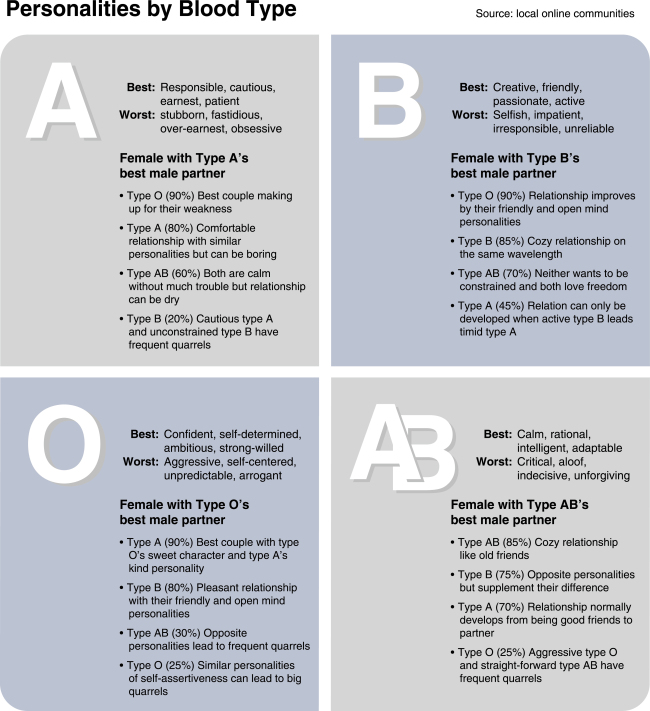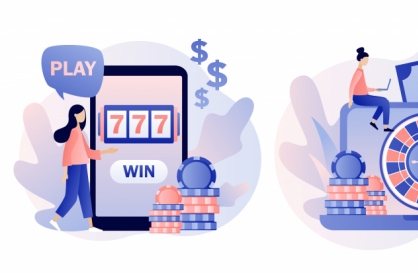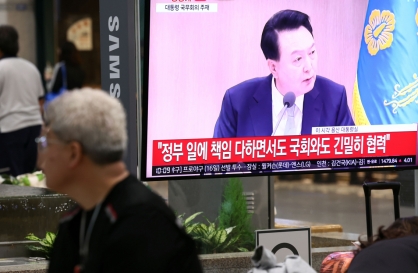[Weekender] Are men with type B blood really womanizers?
Despite it being pseudoscience, stereotyping blood type personalities remains rampant
By Shin Ji-hyePublished : July 26, 2018 - 14:49
Kim Sang-hoon, 29, with type B blood rarely takes part in conversations about blood types linked with personalities.
“Koreans have the misperception that a man with type B blood is selfish, a womanizer or hot-tempered. I don’t want people to judge me in such a way before getting to know me,” he said.
Despite no scientific proof that blood types and personalities are linked, Koreans often ask about blood types to predict someone’s personality -- sometimes going further to judge relationships and career.
According to a survey done last year on 1,500 people by Gallup Korea, 58 percent of the respondents said they believe blood types are correlated with personalities.
The general view of people with type A blood is that they are timid but considerate, placing high value on manners and ethics. A person with type B blood is regarded as being friendly but selfish. A person with type O blood is confident but sometimes aggressive, wanting to be a leader. A person with type AB blood is thought to be intelligent but critical or aloof.
Koreans’ perception of such traits sometimes plays a part when choosing partners, though it is not a decisive factor.
“Koreans have the misperception that a man with type B blood is selfish, a womanizer or hot-tempered. I don’t want people to judge me in such a way before getting to know me,” he said.
Despite no scientific proof that blood types and personalities are linked, Koreans often ask about blood types to predict someone’s personality -- sometimes going further to judge relationships and career.
According to a survey done last year on 1,500 people by Gallup Korea, 58 percent of the respondents said they believe blood types are correlated with personalities.
The general view of people with type A blood is that they are timid but considerate, placing high value on manners and ethics. A person with type B blood is regarded as being friendly but selfish. A person with type O blood is confident but sometimes aggressive, wanting to be a leader. A person with type AB blood is thought to be intelligent but critical or aloof.
Koreans’ perception of such traits sometimes plays a part when choosing partners, though it is not a decisive factor.

For instance, a woman with type A blood and a man with type O blood are said to be the best match, as a cheerful man with type O blood is in harmony with a considerate woman with type A blood.
A couple of type AB blood is also considered a good match, as they are thought to be calm and rational when settling disputes.
The worst couples are said to comprise a man with type B blood and a woman with type A blood. As they have opposite personalities, a self-conscious woman with type A blood and a freewheeling man with type B blood might often have quarrels.
“Such misperception on the link between blood types and personalities sometimes actually ruins a relationship. Although the real problems lie in their personalities, some tend to blame things on their blood types,” said Choi Mee-jung, a psychotherapist at local counseling center Haple Lab.

Koreans’ belief in the correlation between their blood types and personalities does not end there. It sometimes extends to their careers.
According to a survey of 882 employees by recruiting firm Job Korea last year, 59 percent of the respondents said they believe blood types affect job duties.
The survey found that people with type A blood are slightly more concentrated in office jobs that require meticulousness, while there were more people with type B blood perceived as freewheeling in production or on site jobs. More people with type O blood – perceived as sociable -- were found working in sales, while rational and negotiator people with type AB blood were found more in marketing and advertising -- though the differences were all slight.
Despite the widespread myth about the correlation between blood types and personalities, the medical community in Korea dismisses the blood type personality theory as pseudoscience, saying personality has nothing to do with blood as it is formed by education and family background.
Han Kyu-seob, a professor at Seoul National University Hospital, said, “When defining someone’s personality, five standards are normally used: nervous temperament, openness, introverted/extroverted, social skills and conscientiousness.”
“There has been no scientific proof that there is any correlation between the standards and blood types,” Han said.
Chung Jae-seung, a professor specializing in physics at KAIST, said Korea’s obsession with blood types originated in the 1920s from Japan, which had tried to justify its colonization by proving the nation’s superiority. The nation rich with people with type A blood had drawn the conclusion that people with type A blood are superior to others.
“Although an increasing number of the Japanese, who created the myth, no longer believe the blood type personality theory, many Koreans still have blind faith in it,” Chung said.
By Shin Ji-hye(shinjh@heraldcorp.com)






![[From the Scene] Monks, Buddhists hail return of remains of Buddhas](http://res.heraldm.com/phpwas/restmb_idxmake.php?idx=644&simg=/content/image/2024/04/19/20240419050617_0.jpg&u=20240419175937)








![[From the Scene] Monks, Buddhists hail return of remains of Buddhas](http://res.heraldm.com/phpwas/restmb_idxmake.php?idx=652&simg=/content/image/2024/04/19/20240419050617_0.jpg&u=20240419175937)

![[KH Explains] Hyundai's full hybrid edge to pay off amid slow transition to pure EVs](http://res.heraldm.com/phpwas/restmb_idxmake.php?idx=652&simg=/content/image/2024/04/18/20240418050645_0.jpg&u=20240419100350)

![[Today’s K-pop] Illit drops debut single remix](http://res.heraldm.com/phpwas/restmb_idxmake.php?idx=642&simg=/content/image/2024/04/19/20240419050612_0.jpg&u=)